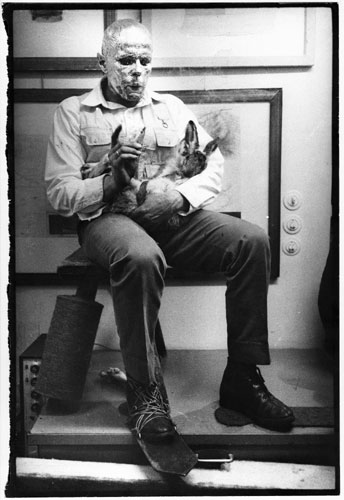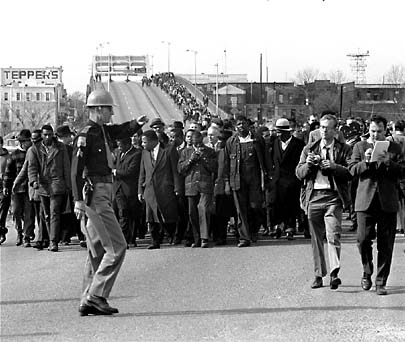
One of the effects of corporate mass media is to make oppression and control appear as normal. To make it appear normal that workers obey authority, and normal for white people to control things. White men, usually.
Normalizing of domination.
The structural dimension of global capitalism is never questioned. The mechanisms are both in language and in image. There is also the role played by media in its presentation of public figures, and of itself, and how this helps blur distinctions between state propaganda, and artworks, between fiction and history.
One of the curious effects of the last thirty years of marketing dominance in media, has been that people have come to live with cognitive dissonance. The government no longer really has to hide its ideology, because the public, largely, accepts ideology as a given. Now, one of the aspects of ideology is that it is normalizing. That’s what it does, in part. Marx said there was an economic base and a superstructure. To be reductive here, the base are those relations of production, and the superstructure the ideology of the owners of production, the ruling class interests in other words. The dominant ideology serves to create a master narrative that suggests its own ideology and belief system is good for everyone. It manages to do this via propaganda and the culture industry.
What seems to have changed is that where once the distortions in propaganda were hidden, they now operate openly.
Ideology forms social reproduction. Althussar maintained that material institutions and rituals created beliefs in the minds of the populace. Ideology has no history, as he said.
Today, the effects of mass media, over a sustained period of time, have created such rote behavior in people that the contradictions of ruling class interests are not perceived as contradictory. Or, they are, but the contradictions are neutralized by a deeply ingrained belief in certain behaviors.

Corporate media now holds a position of almost religious authority within the general populace. If something is part of the established media, any contradiction that occurs is absorbed as an acceptable part of this system of branded virtue. Beyonce can lip sync the national anthem (http://www.thedailybeast.com/articles/2013/01/22/so-what-if-beyonce-lip-synced-the-star-spangled-banner.html) at a presidential inauguration, and this is seen as somehow actually a good thing, a *normal* activity. Questions of authenticity are bypassed, are rendered irrelevant because the spectacle is the authority in such matters. I continue to note the ideological side-bar question of professionalism. The police can do anything, and its OK, because they are professionals just doing their job. Dissent on the other hand is depicted as aberrant. The constant repetition of narratives that define dissent as both unnatural and criminal.
The normalizing, however, takes more subtle forms.

The intellectual or cultural infrastructure is designed, in a sense, to neutralize dissent or radical visions and voices. The institutions of culture will even embrace that which they cannot ignore, and place it within a frame that renders it invisible. Nominate a serious film for an unserious award — not that it will win a prize, but it’s been castrated as a force of cultural change.
Politically, in 2009, there was public debate about torture authorized by the U.S. government. Obama’s Attorney General, Eric Holder, stated clearly, yes practices such as waterboarding were torture, and then in April of that year issued an executive order banning *harsh interrogation techniques*. Following that, the Obama administration decided not to prosecute CIA torturers, in the interest of “moving ahead”. The message was, torture was something in the past, an aberrant practice, now officially banned. Except that, the *war on terror* was to continue, re-branded under new guidlines and labels. Torture was now *not torture*. It was re-normalized.
This is how the new propaganda works. The future is, as Patrica Ticeneto Clough puts it, ‘made to spill into the present’. The anxiety of what is to come in an ever more branded future of fear and catastophe.

The narrative created for the future is one of immigrant deportation, ecological terrorism, occupation, and financial meltdown. A future one needs protection from. It is a present of permanent crisis.
It’s important to understand that branding is more than the creation of a logo or image. For behind that logo is a virtual world of ideological codes. The logo (which can be audio as well as visual) is itself a code, a key that unlocks the myriad abstractions which combine to form a sense of a future in which the consumer is given relief from the state of crisis in the present. In the west, the consumer lives amid a jungle of constant hyperbranding, of non-stop assaults on consciousness. Creativity is hijacked in one sense and put in service of this mental warehouse of potential commodity purchases. The word “lifestyle” is the ultimate code for this imagined creative future.
Media promotes constantly a hyperrealtiy of simulacra that is often linked to screen image. Images are circulated like currency, they are currency in fact. Desire is colonized and occupied by marketers. And marketers are in the service of the dominant ideology.

The erasing of history is now accompanied by the creation of new memory. History isn’t just erased, it is replaced. The replacing of the past however, has to occur with the creation of an uncertain future. A future lifestyle, threatened at all times, by that dangerous world ‘out there’. Out there means poor countries. Personal security is marketed not just as safety from harm, but as a lifestyle. A fashion. Intersecting here comes the co-opting of much of identity politics. For this branding of security must be seen as a lifestyle *choice’. YOU are the sort of person who wants to be secure. You are choosing to be *responsible*. You choose Brand X security systems, or Brand X security services. Security is linked to peace, and to equality. Security is linked to responsibility. Surveillance is OK, it’s part of my personal choice to be safe. The future is dangerous and full of germs (Arabs, Africans, South Americans, Asians).
The resistance to this has been pronounced, and the ideological apparatus is not ignorant of this resistance. Hence, the double down on criminalizing dissent.
Marketing must link security with stability, and choice with conformity. Dissent means non-conformity. The trope of professionalism is linked here, too. The professional is heroic. The Camp guard is heroic. He didn’t make policy, he follows it though, with heroism. Integrity becomes linked with control. With domination.

One of the conflations, intentional, of political branding, is to subsume personal safety (or whatever) with political goals of the Imperialist state. Violence against women becomes linked with liberation of women from those dangerous places (Islam, Africa). It is colonialism all over again. The missionary zeal of white Christians come to civilize the dark continent — only this time as part of the neo liberal values of global capital. Narratives abound which reinforce this dynamic. In fact, it would be hard to find a Hollywood film in which white paternalism is not a central theme.
Conformity becomes non-conformity. Inauthenticity becomes authenticity. The obsession with awards and awards shows speaks to this need for material rituals of validation. The spectacle must have a spectacle. The re-writing of the past needs to be repeated. And repetition is comforting, anyway. The sense of being a member of an audience is also reinforced as a virtue. Audiences are heroic. Audiences can be controlled. The management of the population is the goal, and anyone diverting from this pre-fabricated path of virtue is seen as a threat to safety. Now, almost anytime one hears “safety” used in an advertisment, one will also see a symbol for or an image of *family*. Dissent is anti-family. The manipulation of codes for family is among the more sophisticated of marketing’s techniques. The branding of Obama has paid special attention to notions of family. Partly this is a coded compensatory calculation based on race (the *black* family man) and partly it is to reinforce the sexuality — the virility of the President. The entire narration of the inauguration was one of historical erasure (King’s Bible) and of equating the violence of drone attacks with the liberation of these dangerous places, the better to make me and MY family safe. That the same week, a 16 million dollar a year liberal comedian like Jon Stewart can interview the star of the ultimate propaganda film, and never bring up the controversy, is probably not accidental. It is to be remembered just how much political moral authority has been given to Stewart. Neo liberalism is healthy, virile, faithful, and stable. The history of racism is seamlessly interlaced with the branding of needful death. The war on terror — a war on the poor and in its clear orientalist edifice, is being dispensed by the good black man, the legate of Dr. King, and the audience is treated to constant fashion analysis, fawning adoration, and military symbology. So the actual history of racism is neatly tucked into a larger narrative of feel-good ‘affect’- and the struggles of Selma, Alabama and Martin Luther King are digested into the iconic Bible upon which the good black man lays his hand. Racism is defeated by J. Crew.

I want to write much more on all this, but let me get to one other point, by way of introducing it. At the bottom, almost all advertising deals with the fear of death. The fear of death, of course, is linked directly to personal safety. Today, the public, the body politic, civitas, the community, are all an audience. The actual society is an audience. Audiences are passive. Audiences are there to absorb message. If one traces notion of society, of the civic, from Plato through Hobbes and Machiavelli, the constant, in one sense anyway, is that of a living corporeal material agency. The very term “body” from body politic is worth noting. The short form intro here is that the growing secularization of the west, the rise of Capital, and Enlightenment values, gradually eroded the biological sense of society, and replaced it with figures, numbers, counts, and statistics. Eugene Thacker makes interesting points on this history with regard to the new Zombie film — society as already dead. Zombies have no memory. Zombies have no past, no future. The normalizing of control is message. The cleansing of that which threatens infection. The leveling of drone death, Michelle’s Thom Browne dress, King’s Bible, and the new city on a hill — the echos are there, but they get quickly homogenized in the one dominant message, which is safety means sacrifice but it’s your choice, and you are responsible, you are not a dissenting pathogen. Pass the popcorn. The global system of white neo liberal capitalism IS in crisis. The present is a crisis. The expression of this is to terrorize ever wider swathes of the globe as it reboots its message over and over. Society is a brand, now, too. It is a brand that is statistical and cold and without agency. Without memory. History is part of the performance.

Normalizing of obedience. Normalizing of conformity. Normalizing of professionalism (but always with devotion to management). Below is a link to the Stewart interview, and a brief interview with Glenn Greenwald on the surveillance state.
http://youtu.be/nD1oWvfRcAU
http://www.thedailyshow.com/full-episodes/wed-january-16-2013-jessica-chastain
Torture is professional. Security is your choice. Gender, race, imperialism, and death.


As an aside I’m quoting from something I wrote in an essay about a Nicholas Ray film, Bigger Than Life…”The word normal is of relatively recent origin, coming into usage in 1828 to mean “conforming to common standards.” The notion of a such a thing as a common standard to which behavior conforms is so deeply ingrained in us that it resists analysis, and yet, it is a uniquely contingent idea, falling apart with the least pressure. In the course of a day, one can move from home to school or work, to recreation, to cultural or religious activities and cross through different zones of “normalcy” where entirely different sets of behavior are expected. The fact that it was 1828 before this word became part of the vernacular hints at its scientistic origins, in new sociologies and psychologies that measured, tested and categorized human behavior. The concept of normal appears to be deeply connected to systems of social control and to rationalism, although the latter connection is ironic, for normative behavior is culturally determined and based on a subtle web of largely irrational behavioral cues which go mostly unstated (and thus elude people with maladies such as autism or schizophrenia). People are said to be behaving “rationally” when they are acting in a normal way, and so the “rational” conflates with the conventional, and meaning quickly evaporates as the actual agenda for normality emerges: social control. Intrinsic to the concept of normality is the silence of fear, anxiety and dread—-hidden, but badly.”
But I just want to focus on the Beyonce bit… We may or may not complain that Beyonce was lip syncing–and its hard to sing in extreme cold–but the reality is that her performance was a mix of live and prerecorded. But this elides the question of the choice of Beyonce to “perform” the national anthem in the first place… we dont know…WE DONT KNOW…if it was one of those uber corporate decisions, carefully vetted through handwringingly fearful white house aides or if it was the first girls’ favorite singer…does the ‘truth’ matter though? A picture comes together of the former, simply because of what Beyonce represents, and what she is not. THis is the strange and defining feature of the current category of normalism…that all phenomena tend to seamlessly mesh into a corporate totality, closing over some namelessness which is a deep common psychic wound of unfulfilled promise…more acute to the post new deal generation. To engage with this process(the seamless enmeshing of power)is like tangling with a tar baby…the alternative is the briar patch.
There is so much here I want to respond to. Let me start small though:
Audiences are heroic. Audiences can be controlled.
It seems to me the first film I recall embedding the audience in this new way was the strangely deft reactionary An Officer and a Gentleman….and it was women machinists who were applauding as richard gere carried deborah winger off in an old school alpha romantic her rudolph valentino errol flynn manner…This film seemed to be this systematic riposte to progressive politics and social movements, but with the advanced manner of cooptation and the new finessing of the revanchist racial politics. Not long after – though it seemed long to me then – this audience of cheering applauding female machinists in the textile factory (a scene that is the anti Norma Rae in a lot of ways) reappears in the Wall Street office of Working Girl where the vengeance on feminism and resurgent misogyny as preamble is even more explicit before the couple is united. Now Gere takes Winger off to be a military: in working girl this audience’s applause is followed by a coda where we see the two lovers don’t have time to have breakfast together, their fatigue and devotion to work is eroticised, and then Cinderella is installed in a little office in the middle of a hive of offices…the last shot of working girl, the triumphant achievement of the little office in the middle, wouyld have been the first shot of a movioe that pictured this position in grid of the skyscraper where Tess happily ends as soul-deadening rat race horror in advance of some break for liberty a decade before. It became, from An Officer and A Gentleman onward, obligatory – this audience in the romcom applauding the kiss….But that’s finished now. There was a transition with the montage of tv audience in Truman Show, and then notice ho’wood moved from having established this audience to demonizing it and blaming it for the shit product itself. Populism was inflated and eroticized and then the elites turned on this creature and now show it as the sadistic voyeur, the gluttonous roman arena spectators, responsible for the bad sick entertainments (and even the torture that’s the referent) in need of control.
“old school alpha romantic hero” that should say
” If one traces notion of society, of the civic, from Plato through Hobbes and Machiavelli, the constant, in one sense anyway, is that of a living corporeal material agency. ”
speaking of Machiavelli.
“When the duke occupied the Romagna he found it under the rule of weak masters, who rather plundered their subjects than ruled them, and gave them more cause for disunion than for union, so that the country was full of robbery, quarrels, and every kind of violence; and so, wishing to bring back peace and obedience to authority, he considered it necessary to give it a good governor. Thereupon he promoted Messer Ramiro d’Orco,(*) a swift and cruel man, to whom he gave the fullest power. This man in a short time restored peace and unity with the greatest success. Afterwards the duke considered that it was not advisable to confer such excessive authority, for he had no doubt but that he would become odious, so he set up a court of judgment in the country, under a most excellent president, wherein all cities had their advocates. And because he knew that the past severity had caused some hatred against himself, so, to clear himself in the minds of the people, and gain them entirely to himself, he desired to show that, if any cruelty had been practised, it had not originated with him, but in the natural sternness of the minister. Under this pretence he took Ramiro, and one morning caused him to be executed and left on the piazza at Cesena with the block and a bloody knife at his side. The barbarity of this spectacle caused the people to be at once satisfied and dismayed.”
The Prince, CHAPTER VII — CONCERNING NEW PRINCIPALITIES WHICH ARE ACQUIRED EITHER BY THE ARMS OF OTHERS OR BY GOOD FORTUNE
These are great comments. I want to answer both, and also introduce another aspect all this.
@rita:
I think this is a very interesting point. There is a great book “The Normal and the Pathological” by Georges Canguilhem (the english edition has a good intro by Foucault). He traces the history of ideas of the normal from antiquity up to the 20th century. There are several things to point out here. One is that pre-Enlightenment notions of illness were of two kinds….and both linked to an assumption that a disease one could localize was less significant….boils, or cuts, or lesions, and that say a Parkinsons disease was more significant because it was of the entire man.
So within this structure, germs were taken as manageable and comprehensible because, with a microscope, you could still see them. The Greeks emphasized the idea of balance. Hence, while they seemed to make these distinctions, their focus was on restoring equilibrium. (via the four humors, etc etc). The legacy of these models still persists. Deficiency diseases and parasitic problems favor the ontological, while endocrine (or anything starting with the prefix dys )supported the dynamic theory. Both however created a polemical model…a battle against an enemy. I think this is interesting when one fast forwards to psychiatry. But….just a footnote on this…..the evolution of the relationship between normal and pathological ended with the belief that it was a qualitative imbalance that created the pathological. There is a social and political dimension to this. You find it in Plato…and onward from there….in which virtue was found in the institutions of the state…in which balance and checks were deemed the solution of state virtue. And that one could see a microcosm of this in the balances of the body.From the enlightenment on, the emphasis became one of expert biological and medical science. Authority was vested in expert statistical and quantitative evaluation.
Rational action against disease was trusted as was rational activity in the individual……..the normal was the starting point. And that gets to your comment, I think. By studying rationally the problem of the pathological, one could arrive at the laws and definitions of the normal. This is really arrived at in the 19th century. The doctor, science, the medical institutions were identified with the state. Controlling the pathological was the aim. It was rational to do so. Never mind the definitions of disease were very vague. But one had to protect the social (society) from the threat of the pathological. There is a Nietzche-ian subtext running through this as well, that sort of says, there is no upper limit to the normal……but thats almost a whole other topic.
There is also a Darwinian dimension to all this. Natural selection; which provides a tacit backdrop to much of this evolving set of definitions.
It is also worth noting the legal definitions for insanity — which in the early 20th century came down to a)presence of mental disease, b)presence of defect of reason, c) lack of knowledge of wrongdoing, d)incapacity to refrain from the act.
One can see how these are linked to the entire evolution of thinking on the topic dating back to Ancient Egypt. The imprint of Puritanism is here as well (sound mind, sound body) — and in the middle 1800s the definition in courts in England was that insanity was a bodily imperfection. Palsy was insanity. Etc. Anyway….so, yes, normal has come to mean an acceptance of law, of institutions of authority. Dissent is not normal.
@Molly—-
Something occurred to me reading your comment…and The Truman Show….and all its spin offs. The audience was now ‘responsible’….this is Aaron Sorkin territory, too. You the audience are to blame for me creating this fucking show. Newsroom is nothing if not this. The audience is granted some pretence of importance. It is being told that it’s not passive. Its the whole interactive phenomenon, too. I once wrote for MTV as part of a staff doing alternative storylines for a video game. I was fascinated that people found this interesting. So yes, it was a weird distortion of populism. YOU the audience matter so much…..so you must behave responsibly. When Zero Dark Thirty is embraced by liberals….after all its just a movie…..there are a host of contradictions operating. This gets into a discussion of what identification means…..how we read narrative mimetically. How we re-tell the story — but now, with the identification shifting to ‘being part of an audience’ rather than with the character — and hence characters are less and less developed narratively — the very idea of civic responsibility has been linked to being part of an audience. There are weird echos with Greek tragedy in this….with artworks role in society…or culture vis a vis society. Today the Beyonce singing or not signing is simply part of, as rita said, of a corporate totalizing of experience. Who cares…….that was the author in the Daily Beast…who cares if she “really ” sang….because “really” singing is not the point. The point is the pagent—which is pure manipulation. To buy into this for even a second is to succumb utterly to the system of social domination. Yet, to object is to arrive at the same place. Such is the totalizing effectiveness of the culture industry.
from Tell My Horse, Zora Neale Hurston
What is the whole truth, and nothing else but the truth, about Zombies? I do not know, but I know that I saw the broken remnant, relic, or refuse of Felicia Felix-Mentor in a hospital yard.
Here in the shadow of the Empire State Building, death and the graveyard are final. It is such a positive end that we use it as a measure of nothingness and eternity. We have the quick and the dead. But in Haiti there is the quick, the dead, and then there are Zombies.
This is the way Zombies are spoken of: They are the bodies without souls. The living dead. Once they were dead, and after that they were called back to life again.
No one can stay in Haiti long without hearing Zombies mentioned in one way or another, and the fear of this thing and all that it means seeps over the country like a ground current of cold air. This fear is real and deep. It is more like a group of fears. For there is the outspoken fear among the peasants of the work of Zombies. Sit in the market place and pass a day with the market woman and notice how often some vendeuse cries out that a Zombie with its invisible hand has filched her money, or her goods. Or the accusation is made that a Zombie has been set upon her or one of her family to work a piece of evil. Big Zombies who come in the night to do malice are talked about. Also, the little girl Zombies who are sent out by their owners in the dark dawn to sell little packets of roasted coffee. Before sun up their cries of ‘Cafe gille’ can be heard from dark places in the streets and one can only see them if one calls out for the seller to come with her goods. Then the little dead one makes herself visible and mounts the steps.
The upper class Haitians fear too, but they do not talk about it so openly as do the poor. But to them also it is a horrible possibility. Think of the fiendishness of the thing. It is not good for a person who has lived all his life surrounded by a degree of fastidious culture, loved to his last breath by family and friends, to contemplate the probability of his resurrected body being dragged from the vault – the best that love and means could provide, and set to toiling ceaselessly in the banana fields, working like a beast, unclothed like a beast, and like a brute crouching in some foul den in the few hours allowed for rest and food. From an educated, intelligent being to an unthinking, unknowing beast. Then there is the helplessness of the situation. Family and friends cannot rescue the victim because they do not know. They think the loved one is sleeping peacefully in his grave. They may motor past the plantation where the Zombie who was once dear to them is held captive often and again and its soulless eyes may have fallen upon them without thought or recognition. It is not to be wondered at that now and then when the rumor spreads that a Zombie has been found and recognized, that angry crowds gather and threaten violence to the persons alleged to be responsible for the crime.
Yet in spite of this obvious fear and the preparations that I found being made to safeguard the bodies of the dead against this possibility, I was told by numerous upper class Haitians that the whole thing was a myth. They pointed out that the common people were superstitious, and that the talk orf Zombies had no more basis in fact than the European belief in the Werewolf.
But I had the good fortune to learn of several celebrated cases in the past and then in addition, I had the rare opportunity to see and touch an authentic case. I listened to the broken noises in its throat, and then, I did what no one else had ever done, I photographed it. If I had not experienced all of this is the strong sunlight of a hospital yard, I might have come away from Haiti interested but doubtful. But I saw this case of Felicia Felix-Mentor, which was vouched for by the highest authority. So I know that there are Zombies in Haiti. People have been called back from the dead.
Now why have these dead folk not been allowed to remain in their graves? There are several answers to this question, according to the case.
A was awakened because somebody required his body as a beast of burden. In his natural state he could never have been hired to work with his hands, so he was made into a Zombie because they wanted his services as a laborer. B is summoned to labour also but he is reduced to the level of a beast as an act of revenge. C was the culmination of the “ba’ Moun” ceremony and pledge. That is, he was given as a sacrifice to pay off a debt to a spirit for benefits received.
I asked how the victims were chosen and many told me that any corpse not too old to work would do. The Bocor watched the ceremony and went back and took suitable bodies. Others said no, that the Bocor and his associates knew exactly who was going to be resurrected even before they died. They knew this because they themselves had brought about the “death.”
Maybe a plantation owner has come to the Bocor to “buy” some laborers, or perhaps an enemy wants the utmost in revenge. He makes an agreement with the Bocor to do the work. After the proper ceremony, the Bocor in his most poweful and dreaded aspect mounts a horse with his face toward the horse’s tail and rides after dark to the house of the victim. Then he places his lips to the crack of the door and sucks out the soul of the victim and rides off in all speed. Soon the victim falls ill, usually beginning with a headache, and in a few hours is dead. The Bocor, not being a member of the family, is naturally not invited to the funeral. But he is there in the cemetary. He has spied on everything from a distance. He is in the cemetary but does not approach the party. He never even faces it directly, but takes in everything out of the corner of his eye. At midnight he will return for his victim.
Compare this: “Who cares…….that was the author in the Daily Beast…who cares if she “really ” sang….because “really” singing is not the point. The point is the pagent—which is pure manipulation. To buy into this for even a second is to succumb utterly to the system of social domination” to this: “Was it because of a protest, or was it because of guys out for a walk one night who decided they’d go kill some Americans? What difference, at this point, does it make?” Did anyone notice that yesterday all the chatter was about Hillary’s “performance”? Did anyone hear her use a reference to Argo when describing Benghazi? It’s like the E! Pre Oscar Party for these guys, all of them.
Diane Feinstein opens up her ant-gun crusade today by introducing a “pastor” who says, “Everyone in this city seems to live in terror of the gun lobby. But I believe that the gun lobby is no match for the cross lobby.” Divide an conquer, anyone? This is just how out of touch politicians are- they honestly expect me to chose between my religion and my weapons? I’m from Texas- weapons and religion go hand in hand since only an idiot or a politician would argue with a straight face that I have a right to life but not a right to defend that life. Good God. Talk about conflating terms: if these morons can’t decipher the exact meaning of the Second Amendment, then ask my 5 year old. He can tell you.
It’s just pedantic the way these so-called “elites” think. Do they, from the comfort of their own iMacs, honestly think that their Facebook avatars are going to hold some kind of special reverence in the New World Order? I believe Yuri Bezmenov called the “useful idiots”, people that served a purpose gladly, willingly, and then were exterminated. Does anyone remember Meyerhold and his association with the Bolsheviks before he was executed by them for refusing to conform to the predominate standards that he himself was partly responsible for? Indeed, John, ideology has no history, or, at least, none that a drugged up nation of beggars, pickpockets and carnies can remember.
Bereznov explains it all:
http://www.youtube.com/watch?v=xFqShpJm_zc
thanks Vocalis, very interesting……………..but as as a foot note, this guy is a double for Jaruzelski…………http://news.bbc.co.uk/2/hi/europe/1331686.stm
and yes, very articulate on the use of the term ‘normalization’.